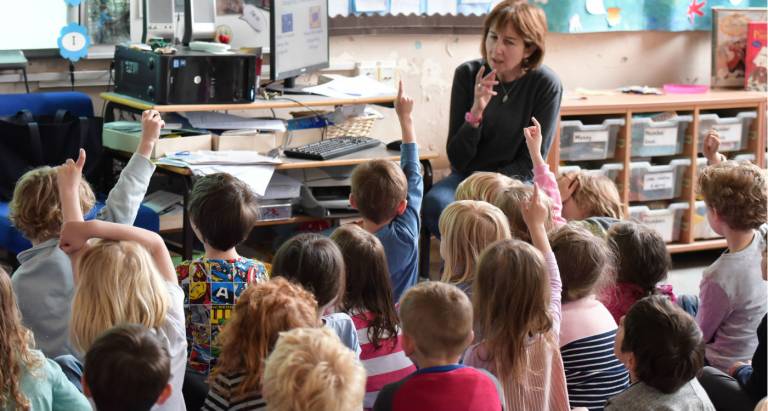IOE academics create framework to ensure research is accessible to practitioners
17 July 2020
Researchers at UCL Institute of Education (IOE) have developed a framework for academics to help make their research more accessible and support the development of successful partnerships with teachers.

In research funded by the Froebel Trust, the team in the IOE’s International Literacy Centre conducted a systematic review of the research evidence to explore what processes have been employed to translate research into early education practice. They also identified key features of academic work that have successfully translated into education settings.
From their initial review of 231 articles and full review of 35 articles, the team found successful uptake of research depended on how well research fitted with existing practices and its relevance to the educational context made a difference.
This was one of seven key themes identified by the researchers in the study, which also found:
- Educators need time to collaborate both with colleagues and researchers, time to reflect on how the research practice fits with existing practice, and time to fit the new practice with existing practices.
- Research needs to be accessible, both physically in terms of medium of output and in terms of language and clarity.
- Any implementations should be phased in and there should be space for iterative and recursive engagement between researchers and stakeholders to assess feasibility and adaptation of practices jointly.
- Locally collected data should be used help provide a context for shared thinking.
- Professional expertise among practitioners should be recognised as this builds practitioners’ confidence in partnership working.
- Organisational leadership is vitally important in facilitating the collaboration between researchers and educators.
Lead author Dr Sinéad Harmey said: “There is no shortage of literature which discusses the translation of research to practice. However, translational research or research that examines the processes and methods for promoting the use of research findings is less prevalant in the field of education compared to medicine and social care. We think this research is important because successful translation of research to practice will have potentially positive impacts on children’s learning and education professionals’ expertise.
“We hope that by translating these findings into a Framework for Research to Practice Translation it will be helpful for those seeking to make their research more accessible and support the development of successful partnerships.”
Links
- Read the paper: ‘Translational Research in Early Childhood Education: A Systematic Review and Framework for Researchers’
- View Dr Sinéad Harmey’s research profile
- International Literacy Centre
- Department of Learning and Leadership
 Close
Close

